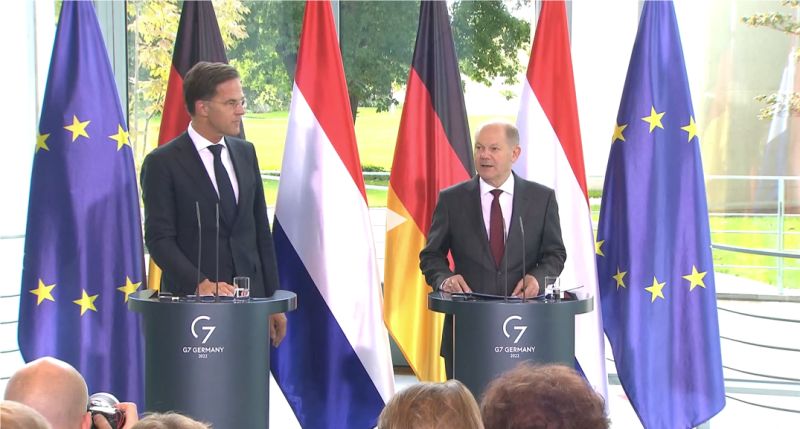General – Climate Neutrality
Today the governments of Germany and the Netherlands have met for a climate cabinet in the Chancellery.

The aim of the consultations with Chancellor Scholz and Prime Minister Rutte: to expand cooperation between the two countries on the way to climate neutrality.
“Germany and the Netherlands are neighbours, close partners and friends – both in our bilateral relations and in our joint work within the European Union and NATO,” said Federal Chancellor Olaf Scholz after consultations between the federal government and the Dutch government. It is a partnership that proves its special value, especially in these times of great challenges. A friendship that proves its worth every day. “After all, it is a task of the century if we want to stop the climate crisis,” said Scholz.
With the climate cabinet, Germany and the Netherlands want to further deepen their climate and energy policy relations – because in addition to the energy crisis, climate change is the greatest challenge of our time. In addition, both countries want to intensify their cooperation, particularly in the areas of offshore wind energy and hydrogen. Chancellor Scholz and Dutch Prime Minister Mark Rutte confirmed this in the Chancellery.
National climate policy measures to reduce greenhouse gases are essential in the fight against climate change. The expansion of renewable energies and the move away from fossil fuels play a key role here. The current energy crisis can also be seen as an opportunity to achieve climate neutrality more quickly. At the same time, both Germany and the Netherlands keep a secure energy supply as a top priority.
In addition to solar power, wind energy also plays an important role in the expansion of renewable energies. Both Germany and the Netherlands will examine the potential for new, hybrid offshore wind farms in the North Sea. Such ‘energy hubs’ supply green electricity to several countries and contribute to security of supply.
The climate cabinet also provided an opportunity to discuss specific examples of closer cooperation between the two countries on climate and energy policy. A joint call for funding for innovations in the field of ‘electrochemical materials and processes for green hydrogen and green chemistry’ was presented.
The planned funding volume is around ten million euros, half of which will be provided by Germany and the Netherlands.
The Chancellor and Prime Minister Rutte confirmed that they would jointly accelerate the market ramp-up for green hydrogen. The Dutch government plans to participate financially in the ‘H2Global’ initiative that emerged from Germany. The aim is to give this key technology an investment boost by bundling the purchase of hydrogen on regulated terms.
In addition, both heads of government agreed, with the involvement of political decision-makers and transmission system operators, to intensify cooperation on the development of a hydrogen infrastructure between Germany and the Netherlands.
